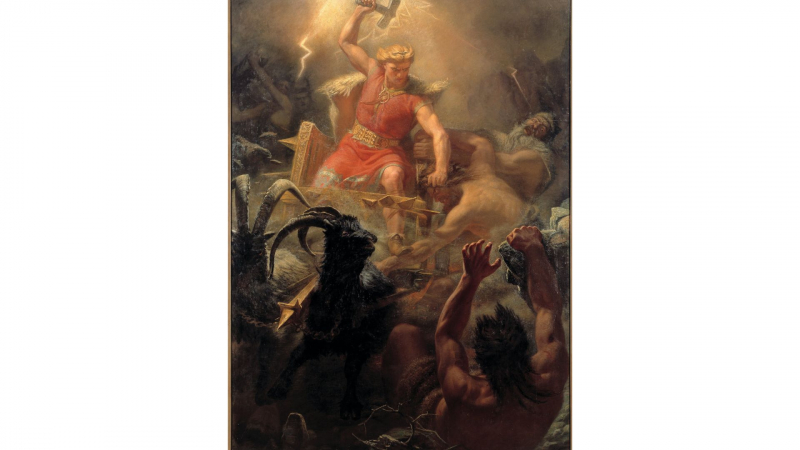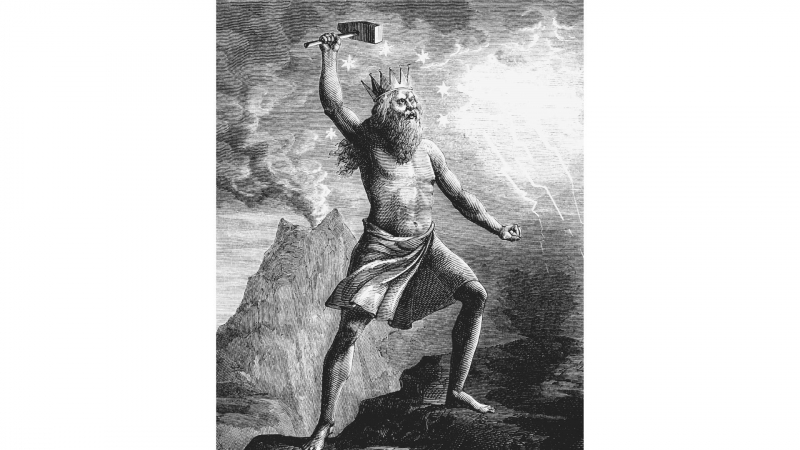Thor

A well-known deity in Germanic paganism as well as one of the most famous Norse gods is Thor. He is a hammer-wielding god from Norse mythology who is connected to lightning, thunder, storms, sacred groves and trees, strength, human protection, hallowing, and fertility. The name of the god appears in Old English as unor, Old Frisian as Thuner, Old Saxon as Thunar, and Old High German as Donar in addition to Old Norse órr. All of these names ultimately derive from the Proto-Germanic theonym *Þun(a)raz, which means "Thunder." From the Roman occupation of parts of Germania to the Germanic expansions of the Migration Period to his high popularity during the Viking Age, when, in opposition to the process of the Christianization of Scandinavia, emblems of his hammer, Mjölnir, were worn, Norse pagan personal names containing the name of the god bear witness to his popularity, Thor is a prominently mentioned god throughout the recorded history of the Germanic peoples.
The most powerful gods of all are typically shown as having red hair and a beard. He was able to overtake his father, Odin, in popularity without making any human sacrifices since he always believed in defending regular people and gods against evil. Due to his lack of superior intelligence and wisdom, the peers taunt and mislead him despite his strength and capacity to assist all races. He becomes enraged and irritable as a result, and he lashes out at them with his hammer, Mjolnir. Magni, Modi, and Thrud are the children of Thor and Sif, the fertility goddess. Thursday is a day that he is connected to.











